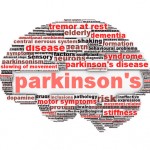 Maternal consumption of wheat is a risk factor for schizophrenia. Wheat can be inflammatory to some people.
Maternal consumption of wheat is a risk factor for schizophrenia. Wheat can be inflammatory to some people.
Other risk factors are low vitamin D, complications during pregnancy or childbirth, and infection with toxoplasmosis or herpes. Read more…
SOURCE: Psychology Today

 It’s something that biomedical doctors, functional-medicine doctors and naturopaths have known about for years, but the
It’s something that biomedical doctors, functional-medicine doctors and naturopaths have known about for years, but the 
 Black Americans display lower levels of vitamin D and greater pain sensitivity compared to white Americans. People with darker skin are more at risk of being deficient in vitamin D.
Black Americans display lower levels of vitamin D and greater pain sensitivity compared to white Americans. People with darker skin are more at risk of being deficient in vitamin D.  Having a son with a developmental delay was very hard on me. He didn’t walk until he was 20 months old. This was extremely hard for me because he didn’t walk until 3 weeks before his little brother was born, and I was having to carry him everywhere.
Having a son with a developmental delay was very hard on me. He didn’t walk until he was 20 months old. This was extremely hard for me because he didn’t walk until 3 weeks before his little brother was born, and I was having to carry him everywhere.

